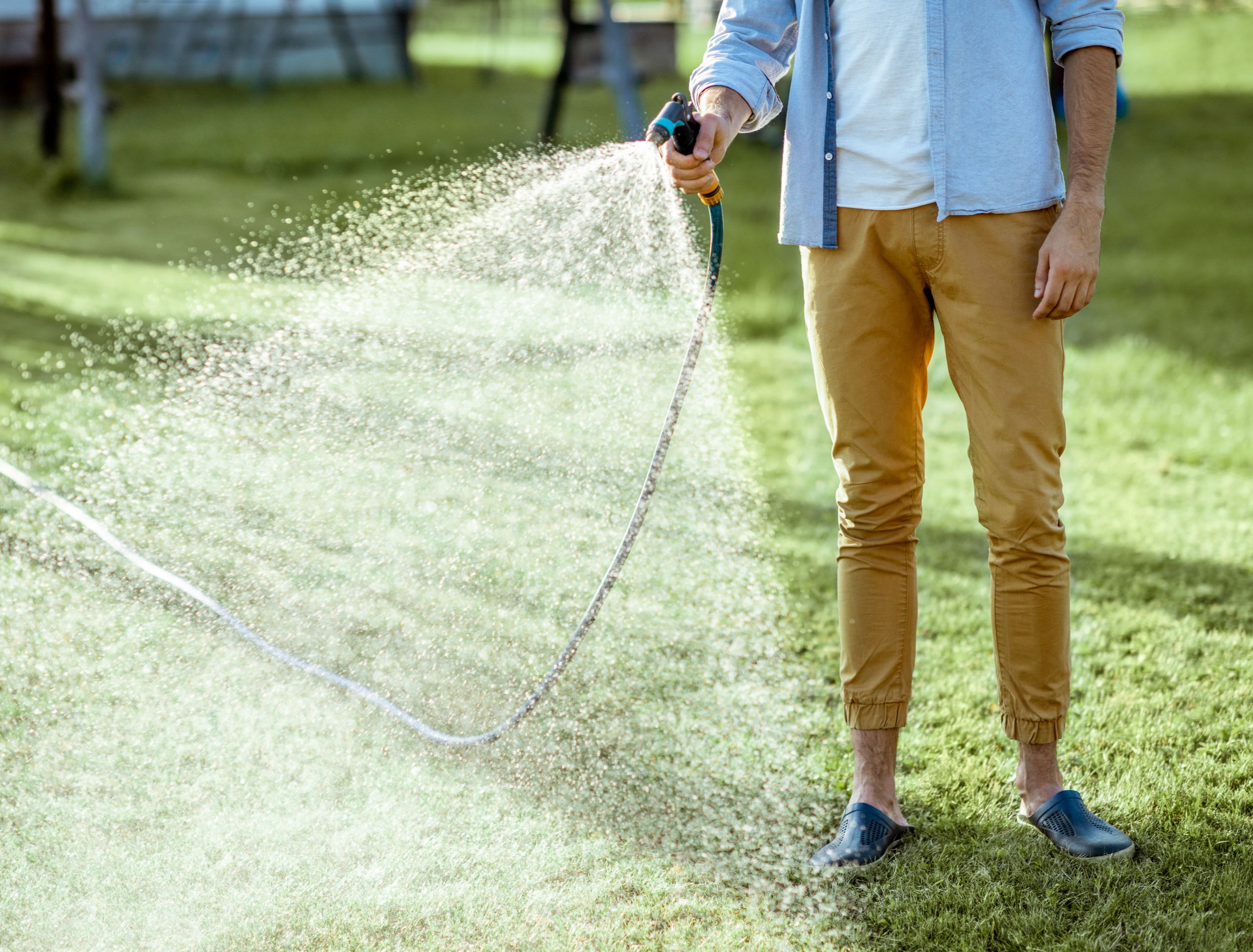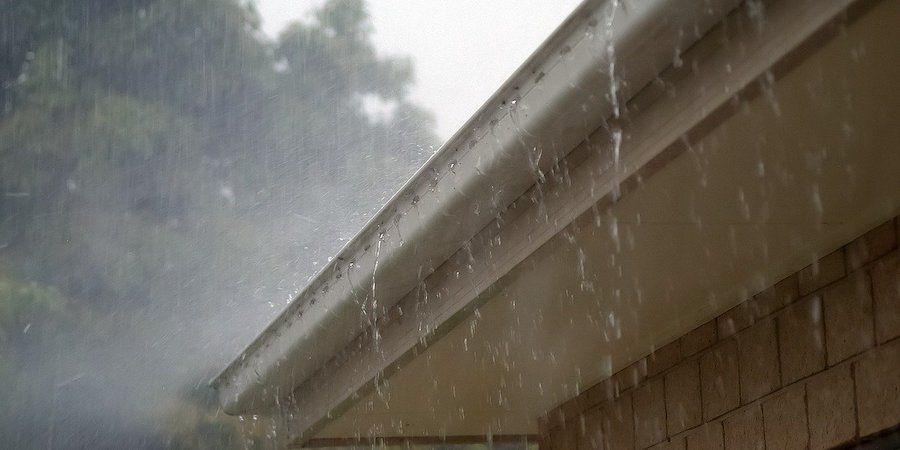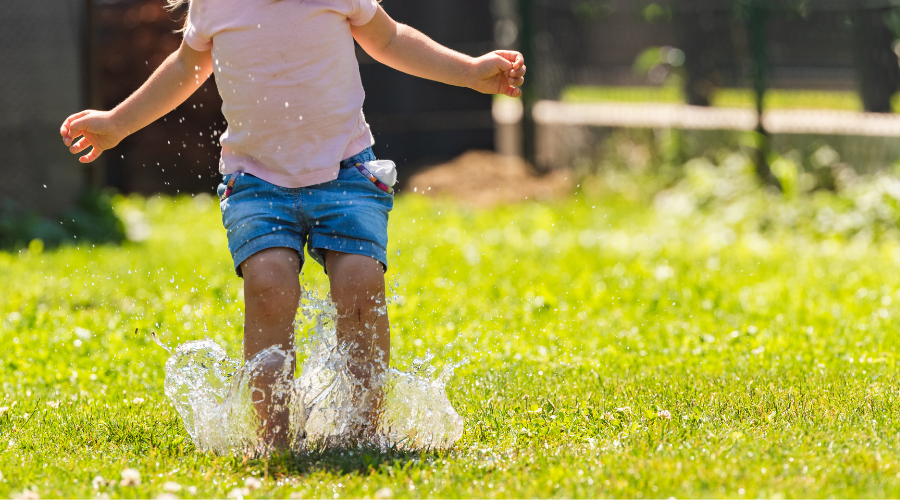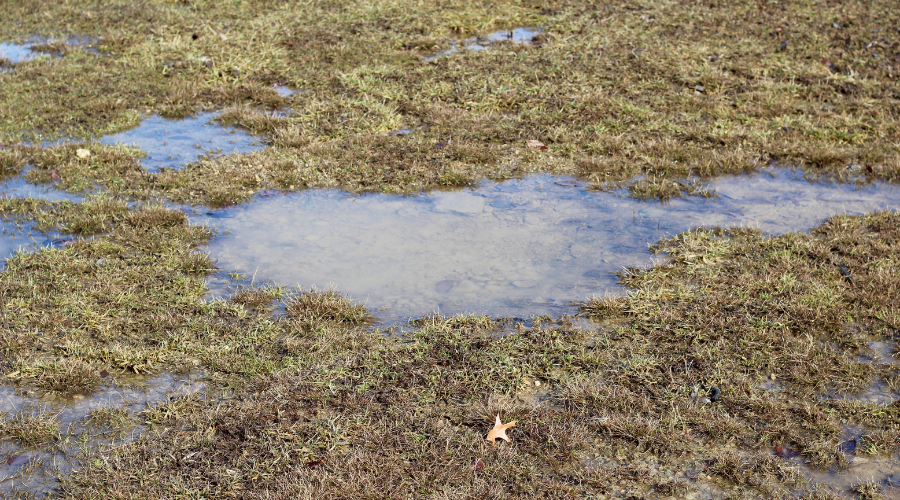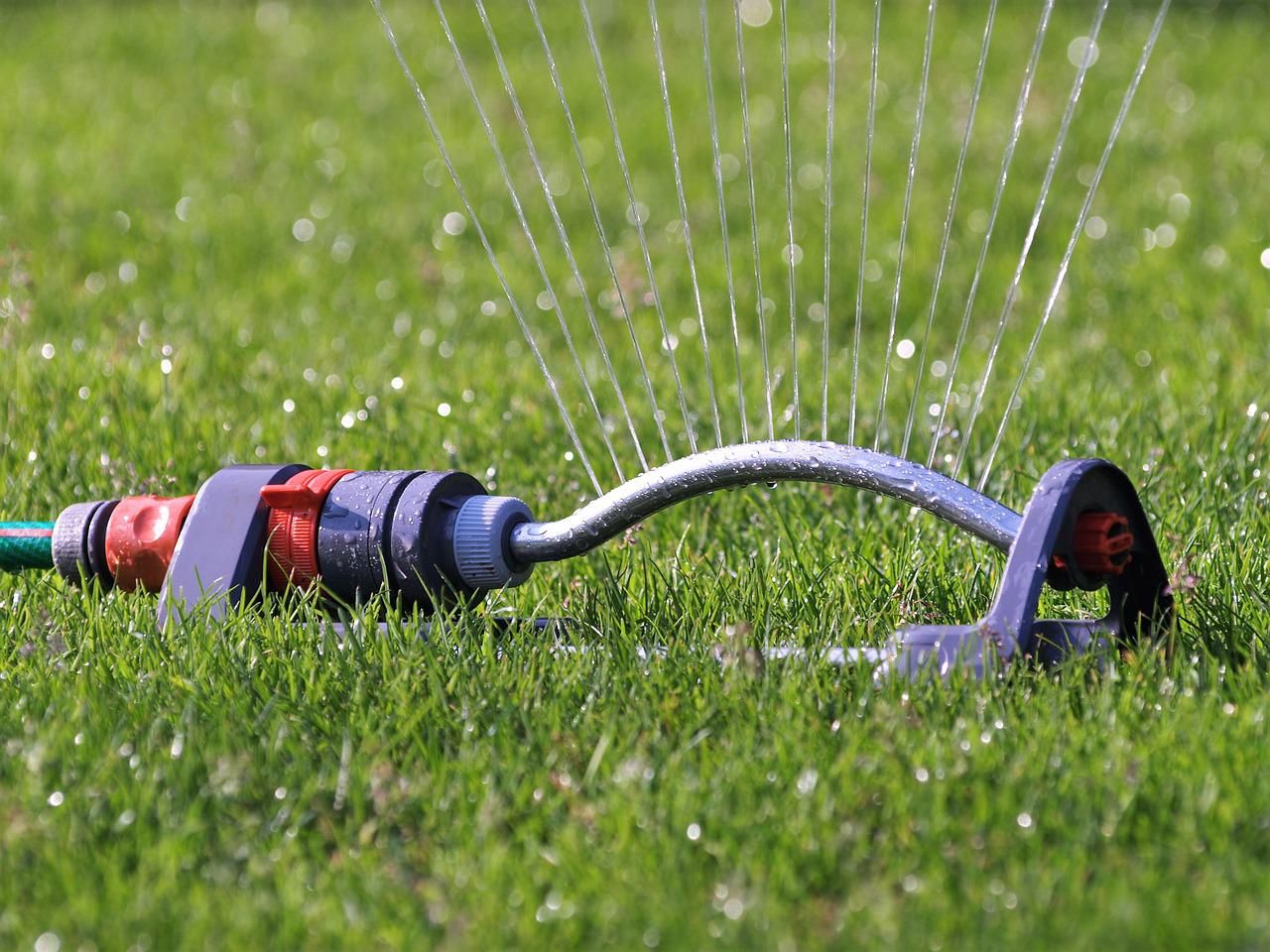We all want a green, thriving lawn, but sometimes it can be difficult to assess how much water it needs. If you water your lawn too little, your grass will begin to turn brown and die. But if you water your lawn too much, you could end up with fungal diseases or root rot. So, how often and for how long should you water your lawn? Let us provide you with the answer below:
How Long Should You Water Your Lawn For?
Image credits: george tsartsianidis via Canva
The simple answer is: it depends. The amount of water your lawn needs will vary depending on the time of year, the type of grass you have, and the weather conditions.
In most cases, nearly all lawns require about 1 inch of water per week. This can come from rainfall or from irrigation (watering with a hose or sprinkler system).
Here are some ways to determine how much water your lawn is getting and what you can do to enhance any missing irrigation:
Rain Gauge
Image credits: sandid via Pixabay
If you're not sure how much water your lawn is getting from rain, you can use a rain gauge to measure it.
These handy devices can be placed in your yard or garden, and they will tell you how much precipitation has fallen. Here's how to use one:
- Place the rain gauge in an open area away from trees or buildings.
- Make sure the gauge is level.
- Check it after a rainfall and empty it, so it's ready for the next storm.
Now that you know how to use a rain gauge, go ahead and give it a try! Knowing how much rain has fallen can help you make decisions about when and how much to water your lawn.
Hose, Sprinkler, or Underground Irrigation System
Image credits: naumoid via Canva
If you need to supplement the rainfall with irrigation, there are a few different ways. You can use a hose and sprinkler or install an underground irrigation system.
Whichever method you choose, make sure you're not overwatering your lawn. Water early in the morning, so the grass has time to dry out before nightfall. This will help prevent fungal diseases. And be sure to water deeply but less frequently rather than shallowly and more often. Deep watering promotes deep root growth, which is essential for a healthful lawn.
The Dangers of Over-Watering Your Lawn
Image credit: przemyslawiciak via Canva
We all know the importance of watering our lawns, but did you know that overwatering your lawn can be just as harmful as not watering it at all? Here are a few dangers of over-watering your lawn.
Drowning Your Lawn
Image credits: Josie Weiss via Unsplash
When waterlogged conditions persist and oxygen is unable to reach the grassroots, they will start to suffocate. This process will cause the blades of your lawn to turn yellow. In addition, waterlogged conditions are also favorable for fungal diseases such as brown patches and Pythium root rot, which can further damage your lawn.
Weeds
Image credits: DmitryTkachev via Canva
Weeds love to take over lawns that have been overwatered since the conditions are perfect for them to thrive. When you overwater your lawn, the top layer of soil becomes drenched and compressed. This makes it harder for oxygen to reach the roots of your plants, which can lead to stressed and unhealthy plants.
Weeds, on the other hand, don't mind compacted soil since they don't need much oxygen to grow. They often do better in these conditions than your lawn does.
If you're watering your lawn every day or even multiple times a day, chances are you're doing more harm than good.
Pollution
Image credit: BullpenAl via Canva
Excess water can run off into storm drains and waterways, polluting them with chemicals and fertilizers from your lawn. This can damage local ecosystems and make it difficult for fish and other aquatic creatures to survive.
Water Waste
Image credits: ariessa66 via Pixabay
Finally, overwatering wastes water. This is not good for the environment, but it can also be costly if you're on a water meter.
So next time you go to water your lawn, think twice about how much you're needing to use. A little bit of water goes a long way!
In Summary
Figuring out how often to water your lawn can be tricky, but it’s worth it to get it right. You want a healthy, green lawn without worrying about overwatering or underwatering. So, what are you waiting for? Get started on figuring out the ideal watering plan for your lawn today!
Do you have any tips or tricks that have worked well for you? Let us know in the comments below – we would love to hear them!

